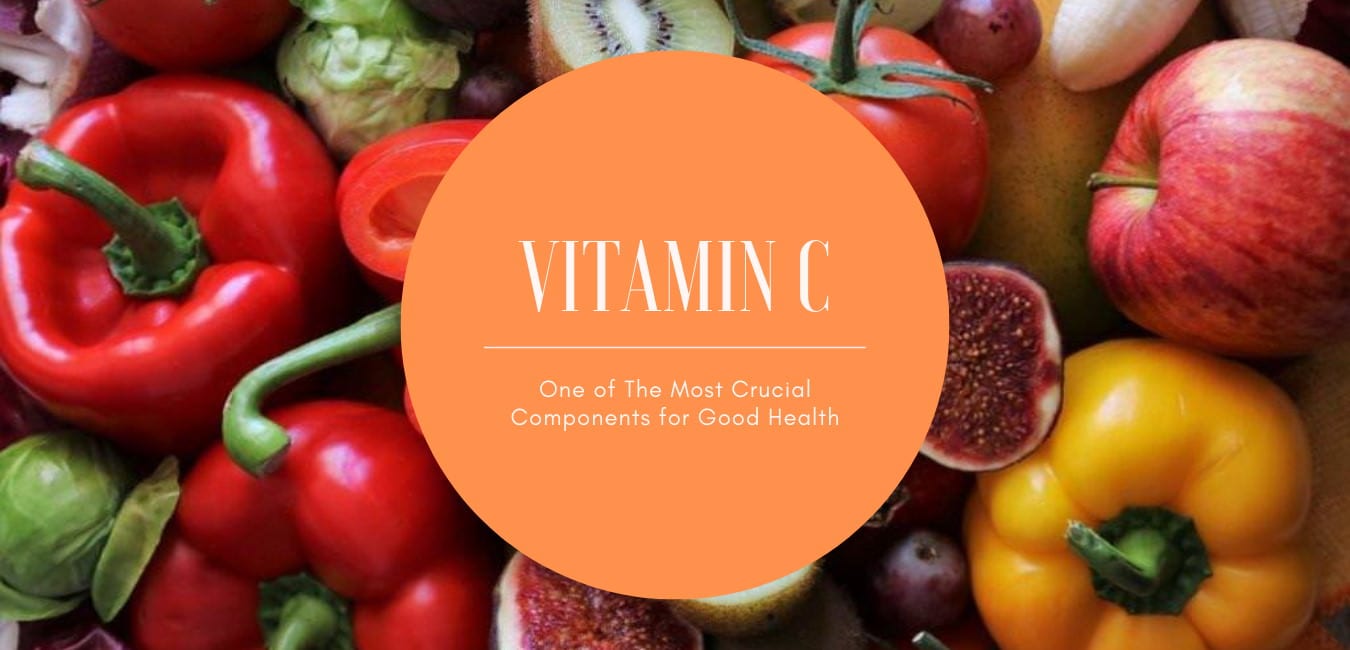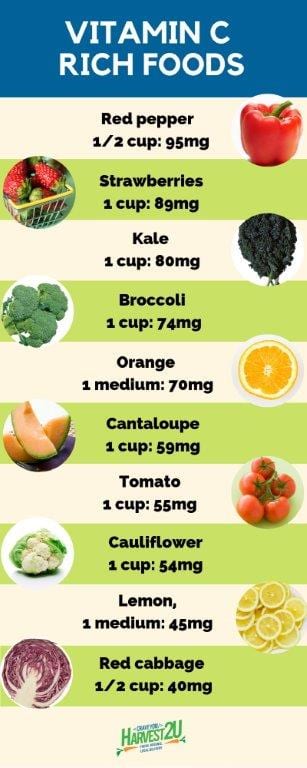
Vitamin C – A Critical Component for Your Body
Vitamin C is one of the most crucial components of good health. The body does not store it, so it is critical to take enough daily through food or supplementation. Luckily there are plenty of wonderful vegetables and fruits available to help your body get the nutrition it needs.
Vitamin C Deficiency
Chronically denying your body vitamin C can lead to:
- Anemia
- Bleeding gums
- Decreased ability to fight infection
- Reduced wound-healing rate
- Dry and splitting hair
- Easy bruising
- Gingivitis(inflammation of the gums)
- Nosebleeds
- Possible weight gain because of slowed metabolism
- Rough, dry, scaly skin
- Swollen and painful joints
- Weakened tooth enamel
- And in severe cases, scurvy
Health Benefits
Antioxidant
Vitamin C is an antioxidant. It reduces oxidative stress in the body that can lower the risk of chronic and degenerative illness such as cancer, autoimmune disorders, aging, cataract, rheumatoid arthritis, cardiovascular and neurodegenerative diseases
The Common Cold
While regular high doses can’t prevent the common cold, it can reduce the severity and duration. So, Mom was right about the benefits of drinking the OJ when you are sick.
Lower Blood Pressure
One study has shown regular intake of Vitamin C may help lower blood pressure in salt-induced hypertension
Fight Heart Disease
Vitamin C has been shown to lower both blood LDL cholesterol and triglycerides level, which helps reduce your risk of developing heart disease.
Gout
Studies show Vitamin C lowers the levels of uric acid in the blood, which can prevent or reduce symptoms of gout.
Anemia Prevention
If your body has trouble converting iron from food into a usable form, Vitamin C can help.
Recommended Amount
The recommended daily value is only 75mg for women and 90mg for men on average to avoid the problems listed above.
Many studies have shown we should aim for closer to 500mg a day for optimal health. Going over 2,000mg daily could upset the stomach and cause diarrhea, but since C is not stored in the body, it does not usually present a long-term effect.
Research is still ongoing as to the differences between taking vitamin C as a supplement versus eating as part of your diet. But the general consensus is to eat plenty of vitamin-rich foods and supplement if needed.
Vitamin C Rich Organic Fruits and Vegetables
Here’s a chart showing some of the many delicious organic fruits and vegetables with plenty of Vitamin C in them.

And you can add extra C Vitamin to your dishes with fresh herbs such as thyme, parsley, cilantro, and dill as well as lemon and orange zest.
Some Vitamin C rich recipes
- Apple Melon Kale Juice
- Parsley Vegetable Juice
- Citrus Salsa
- Hungarian Pickled Red Cabbage
- Peppers Broccoli with Garlic
- Fennel Broccoli and Red Peppers
- Lemony Kale and Quinoa
- Gazpacho
- Spring Garlic and Kale Soup
- Cauliflower Fritters
Getting enough Vitamin C in your diet shouldn’t be a chore with so many delicious natural sources. And if you are going to commit to just doing one healthy thing for your body every day, making sure you get plenty of this great vitamin should be it.
Always use organic fruits and vegetables in your recipes.
Do you live in one of these Southern California Cities? Aguanga, Fallbrook, Hemet, Homeland, Lake Elsinore, Menifee, Murrieta, Temecula, Wildomar, or Winchester. If you do, you can use the local organic fruits and vegetables in our harvest deliveries for these recipes.
Other Great Recipes and Resources
- Spring Vegetable Risotto – Asparagus, Leeks, and Peas
- Organic Avocados – 7 Delicious Ways to Enjoy
- Grilled Eggplant Roulades – A Fun Way To Serve Eggplant
- Organic Celery – Why You Need More Of It
- Carrot Greens – More Vitamin C Than the Root
- Carrot Beet Celery Root Juice
- Catalogna Chicory Salad with Avocado, Grapefruit and Pumpkin Seeds
- 4 Major Health Benefits of Apples – Nutritional Powerhouses
- Arugula Strawberry Salad – With Salmon
- Whole Grain Avocado Pancakes – Healthy Way to Start Your Day
